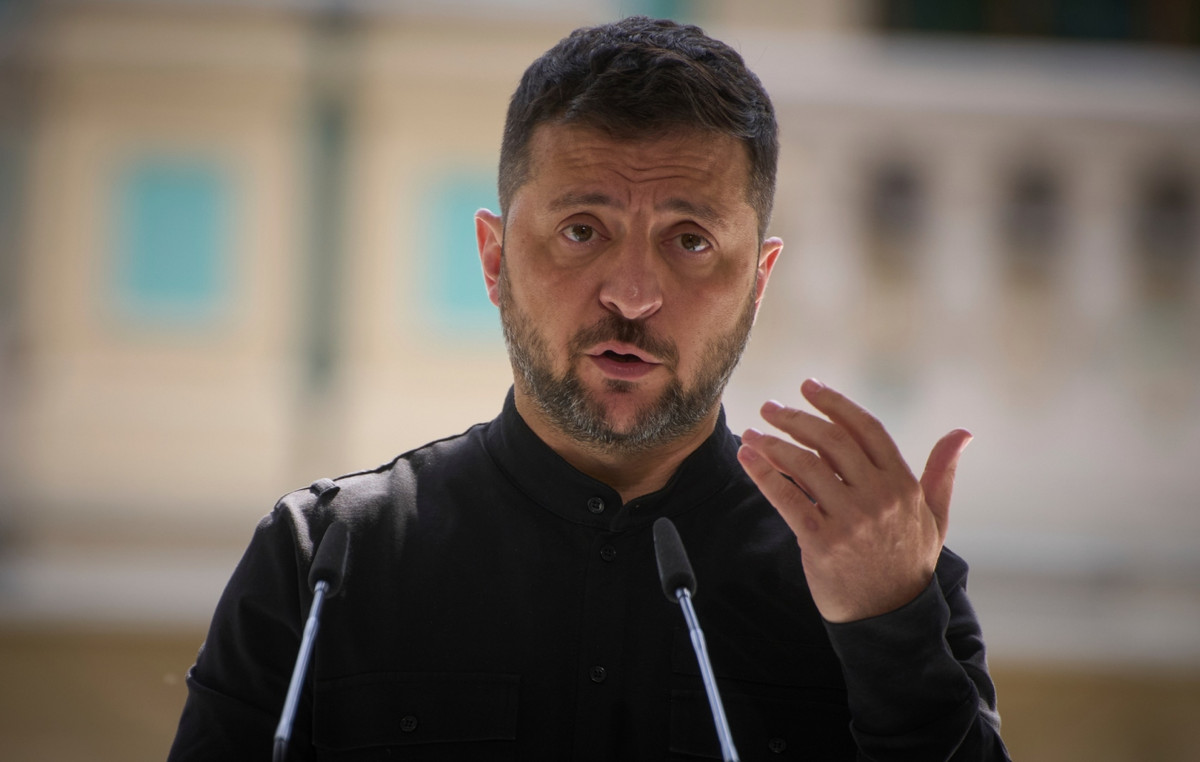One of the sectors most affected by the Covid-19 pandemic in 2020, the aeronautics industry started to catch its breath in 2021, although it is still far from its best historical results.
In yet another atypical year, the category this time began a period of transformation with a focus on sustainability and disruptive technologies while saying goodbye to old concepts, as was the case with the discontinuation of the Airbus A380.
In Brazil, one of the biggest highlights of the airline industry was the debut and the probable end of ITA Transportes Aéreos, an airline of the Itapemirim Group, which operated for less than six months in the market until suspending its operations and losing the authorization of Anac (National Agency of Civil Aviation) to fly commercially.
Below, recall the main facts about Brazilian and world aviation in 2021.
Launch and stoppage of ITA Transportes Aéreos
Born in the middle of a pandemic, ITA Transportes Aéreos, a division of the Itapemirim Group, made its first commercial flight on June 29, 2021 in the stretch between the airports of Guarulhos/São Paulo (SP) and Brasília (SP). However, less than six months after its debut in the Brazilian market, ITA suddenly suspended its activities on December 17th.
In a press release, ITA informed that the stoppage of operations is temporary and that it will carry out “an internal restructuring”. The company added that “soon” it should resume its flights. After the announcement, Anac suspended the company’s Air Operator Certificate.
Until the shutdown of flights, ITA provided services in 13 cities and had already received 10 Airbus A320 jets configured to accommodate 162 passengers. In 2022, the company planned to reach 35 national destinations and form a fleet of 50 aircraft.
Eve receives more than 1,700 requests for e-VTOLs
A subsidiary of Embraer focused on urban air mobility projects, Eve is already one of the big names in the eVTOLs (English acronym for Vertical Take-off and Landing Aircraft) market.
The new category of public transport will debut in the coming years in large cities around the world, including Brazilian cities.
During 2021, Eve received a total of 1,735 eVTOL orders from 17 companies. Among them are three Brazilian companies: Avantto, Flapper and Helisul.
Also this year, the Embraer division started a phase of air mobility tests with the public in Rio de Janeiro, in preparation for the arrival of electric aircraft, scheduled for mid-2026.
The eVTOLs will be the first type of aircraft with electric engines to provide commercial passenger transport services.
Later, with technological advances, these devices will dispense with pilots and adopt autonomous control systems.
Embraer focuses on studies on sustainable products
In August, Embraer began its new strategic plan “Fit for Growth” with Environmental, Social and Corporate Governance (ESG) targets, in which the manufacturer committed to neutralizing carbon emissions by 2050 and create job opportunities for minor groups.
The first step in Embraer’s new strategy came with the confirmation, also in August, of the first flight of its electric aircraft, a technology demonstrator model based on the Ipanema agricultural aircraft designed in partnership with WEG and EDP Energias do Brasil.
Later in November, Embraer introduced the Energia Family, a family of conceptual commercial aircraft with low- and zero-emission engine technologies.
The series includes four aircraft: Energia Hybrid (with hybrid-electric engine), Energia Electric (electric), Energia H2 Fuel Cell Gas Turbine (fuel cell) and Energia Gas Turbine (engines powered by hydrogen or sustainable aviation fuel).
Aircraft manufacturers close trade disputes at WTO
This year, two long disputes in the World Trade Organization (WTO) involving the four largest aircraft manufacturers in the world came to an end. Despite different litigation, the questions were the same: fighting subsidies granted by governments.
In February, the Brazilian government, in Embraer’s defense, communicated to the WTO the decision to end the dispute against Canada, which began in the body in 2017, in which it questioned the benefits granted by the Canadian government to Bombardier.
In June, it was the turn of the United States and the European Union to resolve a trade dispute over subsidies to Airbus and Boeing that began in 2004.
In the dispute with the Canadians, Brazil questioned the subsidies passed on to Bombardier for the development and production of the C-Series jet (current Airbus A220).
The European Union, in turn, protested about Boeing having received unfair contributions from the federal and state governments to fund its activities.
In response, the US filed a similar suit complaining about EU financial assistance to Airbus.
FAB Reduces Orders for KC-390 Millennium
In an announcement that took Embraer and its shareholders by surprise, the Brazilian Air Force unilaterally reduced, on May 26, the order for military freighters KC-390 Millennium, made official in 2014.
Of the 28 aircraft originally ordered, the quantity decreased to around 15 aircraft, implying a 25% reduction in the total value of the purchase contract for the aircraft.
The aircraft would be purchased for around R$ 11 billion (adjusted for inflation), five of which have already been delivered to the FAB.
The Air Force justified the cut due to a budget restriction on military programs in the current government and because it did not reach a solution in negotiations with Embraer.
The manufacturer, in turn, informed at the time that it would seek legal measures on the FAB’s decision.
FAB receives first F-39 Gripen fighters
The first batch of four F-39E Gripen fighter planes was delivered to the Brazilian Air Force (FAB) on November 24, at a ceremony held in Linköping, Sweden, at the headquarters of Saab, the fighter jet manufacturer. The FAB has ordered a total of 36 aircraft, including eight units of the F-39F version for two pilots.
The delivery of the first series Gripen to the FAB is the realization of the FX-2 Project, started in 2006 during the government of then president Luiz Inácio Lula da Silva (PT), replacing the previous program, called the FX Project. The Swedish jet was chosen in 2013, during the administration of Dilma Rousseff.
The contract for the purchase of the new FAB fighters is valued at 39.6 billion SEK, the equivalent of R$ 24.1 billion at the current price.
The deal also includes the transfer of technology for the Swedish jet to Brazil, which will have the license to produce the aircraft.
Delivery of the 36 FAB jets, including the Gripen that will be produced locally, will be completed in 2024.
Airbus delivers or last A380
Largest passenger aircraft of all time, the A380 ended production this year. The Airbus group delivered the last copy of the aircraft on December 16 to the airline Emirates Airline, which is by far the model’s biggest customer with 121 active jets in the fleet.
The A380 was the commercial aircraft most affected by the drop in passenger demand during the Covid-19 pandemic, which made it financially uninteresting for most of its operators.
The future of Airbus’ four-engine aircraft was being questioned even before the global health crisis due to its extremely high operating cost and few orders, which led Airbus to announce the end of the program in 2019.
In all, the European manufacturer produced 251 units of the plane with a capacity for more than 500 passengers between 2008 and 2021.
These jets were acquired by 14 airlines, including Air France and Lufthansa, which have already withdrawn their models from service for reasons of economy.
Boeing 737 MAX 10 first flight
On June 19, the 737 MAX 10 flew for the first time from Boeing headquarters in Renton, USA. The jet is the last model planned in the MAX series, which also includes the MAX 7, MAX 8 and MAX 9 versions.
It is also the largest 737 in the aircraft’s more than 50 years of history, with a fuselage of 43.8 meters in length and capacity for 230 passengers.
The maiden test of the 737 MAX 10 marked the resumption of development for the MAX program.
The model flew seven months after the end of the grounding of the MAX series jets, which was banned from commercial flying for nearly two years after two fatal accidents occurred between 2018 and 2019.
With the design flaws fixed, the jets began to be released in late 2020.
The commercial debut of the 737 MAX 10 is expected in 2023, one year later than originally planned. Boeing currently has 648 units of the aircraft on order, including 30 orders from the Brazilian company Gol Linhas Aéreas.
“Russian Airbus”, Irkut MC-21-300 is cleared for commercial flights
The first fully designed commercial aircraft in Russia since the dissolution of the Soviet Union in 1991, the Irkut MC-21-300 finally received the certificate of airworthiness from the Russian Federal Aviation Agency. The aircraft’s certification, confirmed on December 28, took place more than four years after the commercial jet’s first flight, in May 2017.
With a capacity to transport from 163 to 211 passengers, the MC-21-300 competes in the same category as the traditional Airbus A320 and Boeing 737.
The Russian jet’s entry into service, however, should only take place in September, according to the manufacturer controlled by the state-owned group United Aicraft Corporation. The aircraft’s first customer will be Russian airline Rossiya Airlines.
Reference: CNN Brasil
I am Sophia william, author of World Stock Market. I have a degree in journalism from the University of Missouri and I have worked as a reporter for several news websites. I have a passion for writing and informing people about the latest news and events happening in the world. I strive to be accurate and unbiased in my reporting, and I hope to provide readers with valuable information that they can use to make informed decisions.







